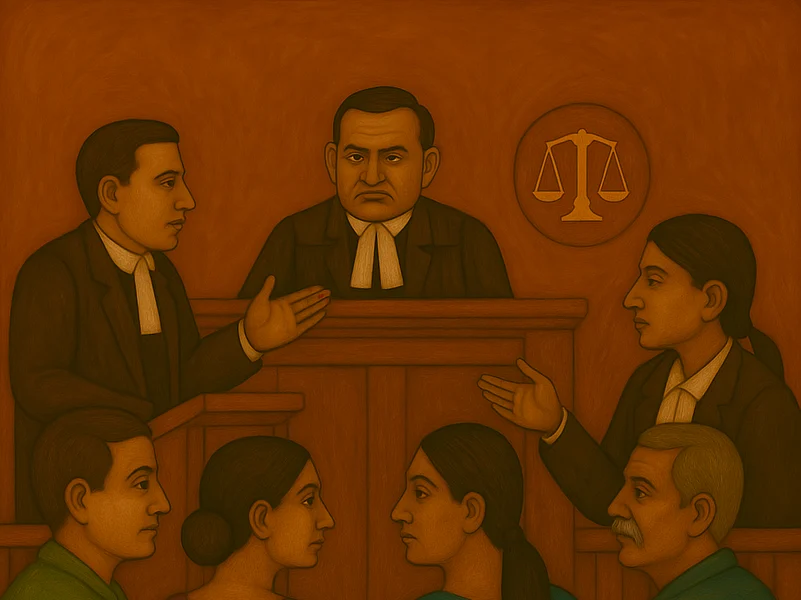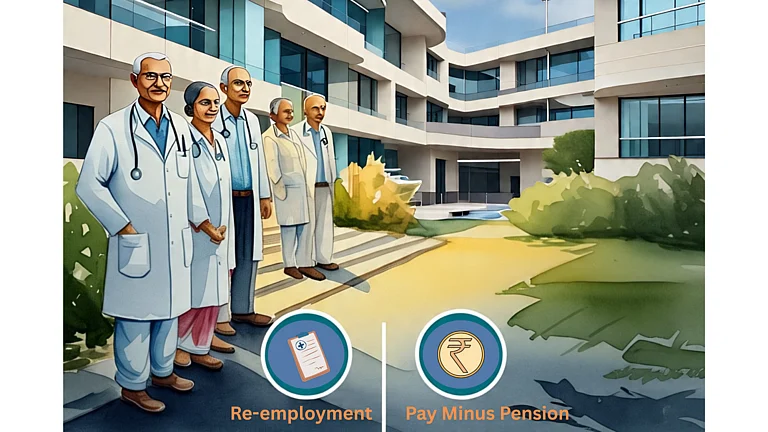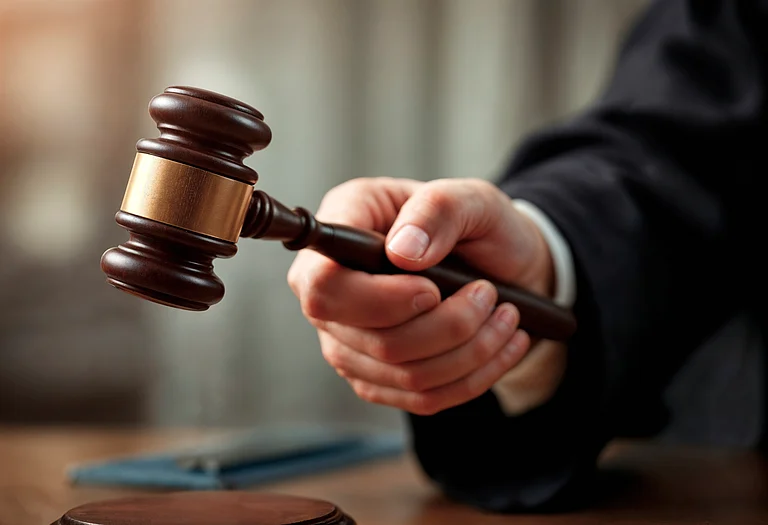The Supreme Court of India, in a recent judgement, ordered that an employee of a society does not automatically become a government employee. The bench of Justice Ujjwal Bhuyan and Justice Manmohan dismissed a petition by a person (junior weaver) who worked at the Weavers Service Centre, Agartala, covered under the Ministry of Textiles. The Court referred to Article 12 of the Constitution of India to clarify that the petitioner cannot automatically be considered a government employee just because the society where he worked is regarded as a 'State' under the Article. The confusion that led the petitioner to file the petition may be in Article 12 of the Constitution of India.
What Does Article 12 Of The Constitution Of India Say?
This Article defines 'State'. It reads, "Unless the context otherwise requires, "the State" includes the Government and Parliament of India and the Government and the Legislature of each of the States and all local or other authorities within the territory of India or under the control of the Government of India."
As the Article includes 'Other authorities under the control of the Government of India' as a State, it may have led to the contention in this case.
Areez Gazdar, Partner, Veritas Legal, shares, "Terms like "other authorities" and "under the control of the Government of India" are open-ended and have been interpreted by courts through various judgments. Over time, the Supreme Court and High Courts have developed tests and criteria to determine whether an entity falls within the scope of "the State" under Article 12."
Akhil Chowdary Unnam, Partner & Head (Dispute Resolution Services), Unnam Law Firm, says, "The definition (of Article 12) is intentionally inclusive to encompass all those that can be directly considered to be discharging State or government-like functions. The use of terms "other authorities" is deliberate to encompass other non-governmental authorities. This is done to hold those private organisations which discharge functions of immense public interest. This is also done to allow judicial flexibility and interpretation on a case-by-case basis."
He adds, "Indian Courts have developed multiple criteria to assess whether an entity qualifies as "State," such as Statutory origin or authority, Governmental funding, Government control (administrative, financial, or functional), and Performance of a public function or exercise of statutory monopoly."
While the definition of State is clear, the employees working are not the state employees. It is clear in this case when the Supreme Court held that an employee of a society under Article 12 does not automatically become a government employee.
How Did The Contention Start?
It started when the Weaver's Service Centre (WSC), Agartala, which is a government organisation under the Ministry of Textiles, terminated the petitioner. The reason for termination was the misrepresentation of the previous employment. According to the Live Law report, the petitioner previously worked as a craft teacher with the Tripura Tribal Welfare Residential Educational Institutions Society (TTWRES), which is not a government organisation. Allegedly, he misrepresented it as a government organisation to secure a job in the WSC.
When a verification check was conducted, the Ministry of Handloom and Textiles found that TTWRES is not a government organisation. Subsequently, the Department of Personnel and Training (DoPT) also verified and confirmed these findings. As a result, the petitioner was terminated.
However, he challenged the termination order and filed a writ petition. The single-judge bench held that TTWRES is not a government organisation, and thus, he cannot be considered a government employee.
The petitioner challenged the single bench order to the division bench of the Tripura High Court. The division bench of the High Court referred to the CCS (CCA) Rules, 1965 to ascertain who can be considered a government servant under the law.
The High Court then upheld the single bench's order.
Who Is Considered A Government Employee?
According to the Rule 2(h), of CCS (CCA) Rules, 1965:
(h) 'Government servant' means a person who –
(i) is a member of a Service or holds a civil post under the Union and includes any such person on foreign service or whose services are temporarily placed at the disposal of a State Government or a local or other authority
(ii) is a member of a Service or holds a civil post under a State Government and whose services are temporarily placed at the disposal of the Central Government
(iii) is in the service of a local or other authority and whose services are temporarily placed at the disposal of the Central Government
The Judgement
The Supreme Court noted that the petitioner declared that he was a government servant, but upon verification, he was found to be misrepresenting the information. It also rejected the doctrine of estoppels and waiver in this case.
Doctrine Of Estoppels And Doctrine Of Waiver
Unnam explains, "Estoppel prevents a person from contradicting their earlier statements or conduct when another party has relied upon such representation, resulting in a change in position or detriment. The doctrine of waiver involves the intentional and voluntary relinquishment or abandonment of a known legal right or privilege by a person."
Gazdar adds, "In constitutional contexts, estoppel is often invoked to protect fundamental rights by restraining state authorities from acting inconsistently with previous assurances, policies, or representations—especially where citizens have reasonably relied upon them."
The Court held the petitioner's appointment in the WSC voidable due to the false information provided by him about a material fact and dismissed the petition.



















